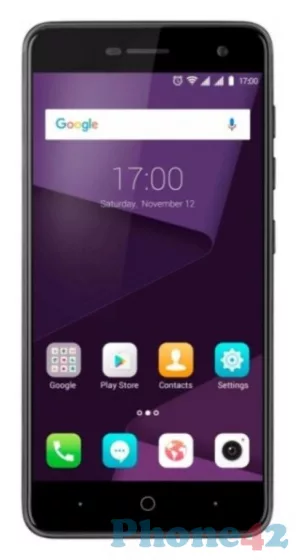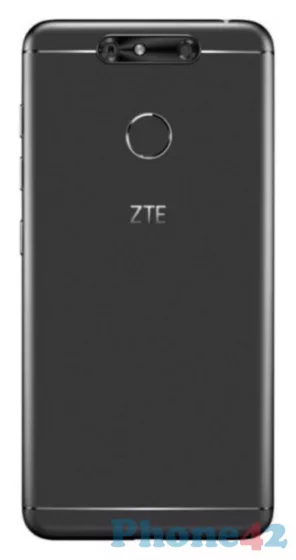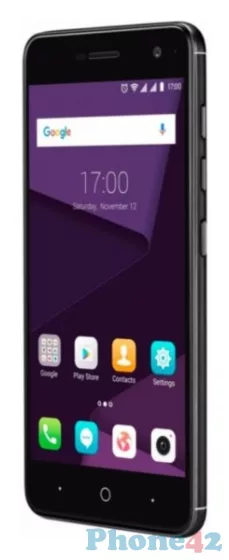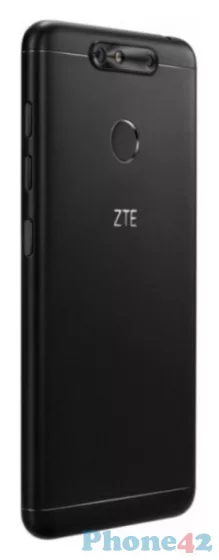
ZTE Blade V8Q (2018)
This phone comes equipped with a 5 inch IPS display, a Qualcomm Snapdragon 425 MSM8917 chipset, and 2 GB of RAM.
Explore its advantages and disadvantages!
Table of Contents
- ZTE Blade V8Q specifications
- Weight, dimensions, colors
- System, chipset, performance
- Display type, size, resolution
- Memory, storage
- Cameras, flash
- Connectivity, network, wireless
- Battery type, capacity, charger
- Features, sensors, specials
- Verdict, pros and cons
This article shares our personal experiences and thoughts about using the ZTE Blade V8Q smartphone. We hope to offer helpful insights to others interested in this device.

ZTE Blade V8Q specifications
| Brand | ZTE |
|---|---|
| Name | Blade V8Q |
| Model | V0840 |
| Release date | 2018 |
Weight, dimensions, colors
| Weight | 4.66 oz |
|---|---|
| Dimensions | 5.71 x 2.78 x 0.31 inch |
| Colors | gold |
| SIM type | Nano SIM |
The weight of ZTE Blade V8Q is about 4.66 oz with battery. This is average for smartphones of the same size. Smartphones use a Nano SIM as a small chipcard for a subscriber identity module (SIM).

System, chipset, performance
| OS version | Android OS v7.1.2 (Nougat) |
|---|---|
| SoC | Qualcomm Snapdragon 425 MSM8917 |
| CPU | Quad-core 1.4 GHz Cortex-A53 |
| GPU | Adreno 308 |
The ZTE Blade V8Q comes with Android OS v7.1.2 (Nougat) out of the box. Google has integrated many services with Android. These include Google Maps, Gmail, and Google Drive. The mid-range CPU can deliver fast, efficient performance for many tasks. Qualcomm's Snapdragon processors work with Adreno GPUs. The processors are designed for the GPUs.

Display type, size, resolution
| Display type | IPS |
|---|---|
| Screen size | 5 inch |
| Resolution | 720 x 1280 px |
| Multitouch support | yes |
The 5 inch IPS display has better features. These include optimal viewing angles, color accuracy, and unchanging color reproduction. The 5 inch display make this smartphone pocket-friendly. The size of the screen is measured diagonally, from corner to corner.

Memory, storage
| RAM | 2 GB |
|---|---|
| Internal storage | 16 GB |
| Memory card slot | microSD |
The smartphone has 2 GB of RAM. It can run many apps at once without much lag or slowness. Having more RAM alone does not guarantee better performance. Most people think a smartphone needs at least 32 GB of storage. The Blade V8Q has only 16 GB. We can expand the internal storage (16 GB) with a compatible microSD card.
Cameras, flash
| Main camera | 13 + 2 MP, 4160 x 3120 px, autofocus |
|---|---|
| Flash | LED |
| Selfie camera | 8 MP |
Multiple cameras or depth sensors can help the smartphone. They can make its portrait mode effects more appealing. The Blade V8Q does not have optical image stabilization (OIS).
Connectivity, network, wireless
| GSM 2G bands | 850 / 900 / 1800 / 1900 |
|---|---|
| Network coverage | 2G / 3G / 4G |
| Wi-Fi | Wi-Fi 802.11 b/g/n |
| Bluetooth | v4.1, A2DP |
| GPS | A-GPS, GLONASS |
| NFC | no |
| FM radio | yes |
| USB | microUSB 2.0 |
| Headphone | 3.5 mm jack |
The ZTE Blade V8Q supports 4G/LTE networks. The phone is capable of connecting to Wi-Fi networks. The Blade V8Q smartphone is capable of connecting to Bluetooth devices. The GPS allows this smartphone to find their exact location. It provides accurate navigation and mapping. The phone isn't NFC (Near Field Communication) capable. NFC is not essential for basic phone functionality, but it can be useful. The 3.5 mm headphone jack allows us to connect wired headphones or earphones to the device.
Battery type, capacity, charger
| Type | Li-Po 2500 mAh, non-removable |
|---|
The Li-Po 2500 mAh, non-removable battery gives the smartphone a good battery backup. The lithium polymer (Li-Po) battery is a light-weight, rechargeable battery. The battery of Blade V8Q isn't removable without voiding the warranty.
Features, sensors, specials
| Sensors | accelerometer, fingerprint, light, proximity |
|---|
Today, smartphones come with many sensors. They help make the user experience better. The accelerometer provides information about the smartphone's movement in three axes. These are X (horizontal), Y (vertical), and Z (depth). The Blade V8Q phone has a fingerprint scanner. The light sensor detects the level of light in the environment.
Verdict, pros and cons
Every phone has its strengths and weaknesses, and this ZTE phone is no exception. As with any device, there are aspects that shine and others that fall short. By examining both sides, we can paint a complete picture of what this phone has to offer. Let's explore its standout features and areas for improvement. Remember, this is just my opinion, and yours might be different.
Pros
- microSD slot
- multicamera setup
Cons
- limited-size screen
- insufficient internal storage
- no OIS function
- no 5G support
- no NFC feature
- no Type-C USB port
- low-capacity battery
- no digital compass
Please let us know if you find incorrect information or something isn't working. Also, tell us if you have a suggestion for improvement.
Updated: May 25, 2024
 I'm Lucas Bradley, the founder of the Phone42.com site. I love technology, especially smartphones, and I've been working with tech stuff for more than 20 years. This means I've seen a lot of changes and have learned a bunch about what makes a good phone. On Phone42.com, I look at all kinds of phones. They can be from big, well-known companies or new ones trying to make their mark. I want to help people understand what's new and cool in the world of smartphones, in a way that's easy to get.
I'm Lucas Bradley, the founder of the Phone42.com site. I love technology, especially smartphones, and I've been working with tech stuff for more than 20 years. This means I've seen a lot of changes and have learned a bunch about what makes a good phone. On Phone42.com, I look at all kinds of phones. They can be from big, well-known companies or new ones trying to make their mark. I want to help people understand what's new and cool in the world of smartphones, in a way that's easy to get.